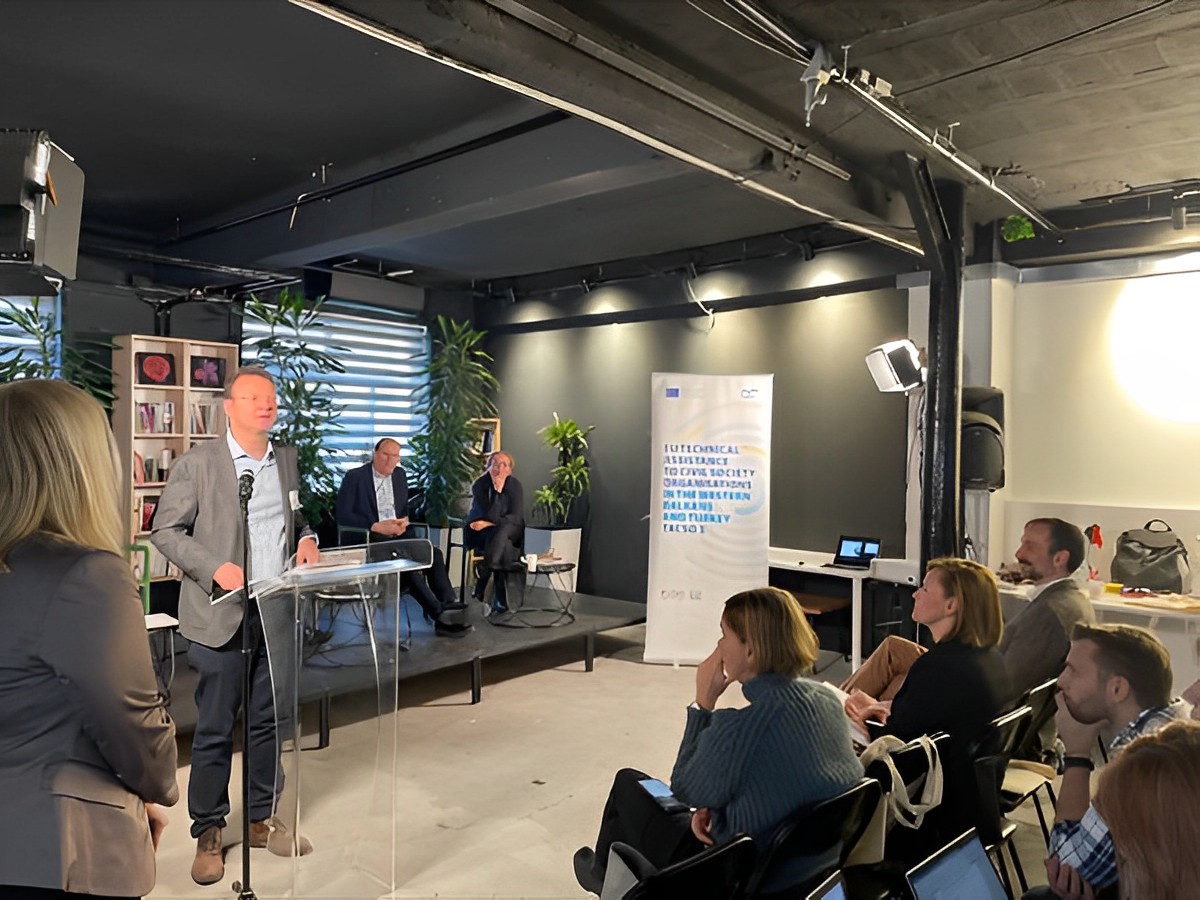
During 6-7 Dec ’22, EU TACSO 3 project organized a regional workshop on the topic of Financial Support to Third Parties (FSTP) for civil society actors from the Western Balkan and Türkiye.
EU TACSO 3 project gathered 50 participants from civil society from the Western Balkan and Türkiye region to present and discuss different experiences from the FSTP practices, including planning and implementation of the projects, development of technical and managerial capacities, design of the capacity building support, and establishing of selection, monitoring, and reporting procedures.
The purpose of the FSTP workshop is to inform, raise awareness, and support networking among all the relevant parties in FSTP activities.
Please download the FSTP Workshop Agenda.
Please see the photo gallery.
Please download the publication on Collection of Good Practices of Financial Support to Third Parties in the Neighbourhood and Enlargement Countries, including variety of existing approaches, experiences and lessons learnt from the field here: ENHANCED OUTREACH TO CIVIL SOCIETY ORGANISATIONS
What is FSTP?
Financial Support to Third Parties (FSTP) is an instrument whereby the EU provides funding to one organisation as a grant applicant which, in turn, re-grants funding to a number of smaller CSOs, grassroots or community-based organisations, in order to help achieving the objectives of the action.
Why did European Commission introduce FSTP?
In order to reach out to more CSOs with varying levels of managerial, technical, and advocacy capacities, beyond those based in capitals in the partner countries, the European Commission has increasingly used Financial Support to Third Parties (FSTP).
What is achieved with FSTP as an instrument for civil society organisations?
With this, the European Commission has significantly increased the number of CSOs benefitting from EU support. FSTP allows for more tailor-made support of grassroots organisations and informal groups with smaller grants and more accessible application and selection procedures which are offered in local languages. It also provides the flexibility to define eligibility and reporting requirements adapted to the capacities of target beneficiaries within the difficult political contexts in which civil society actors often operate.
At the moment, the FSTP is an increasingly used tool throughout the Western Balkans and Turkey region to enhance outreach to a wider range of local beneficiaries, notably in the areas of good governance, gender equality, human rights, and civil society support. However, while FSTP has contributed to developing capacities for FSTP beneficiaries, there are more and more FSTP implementors reporting challenges facing the administration of FSTP requirements and management of the FSTP components of the projects.
